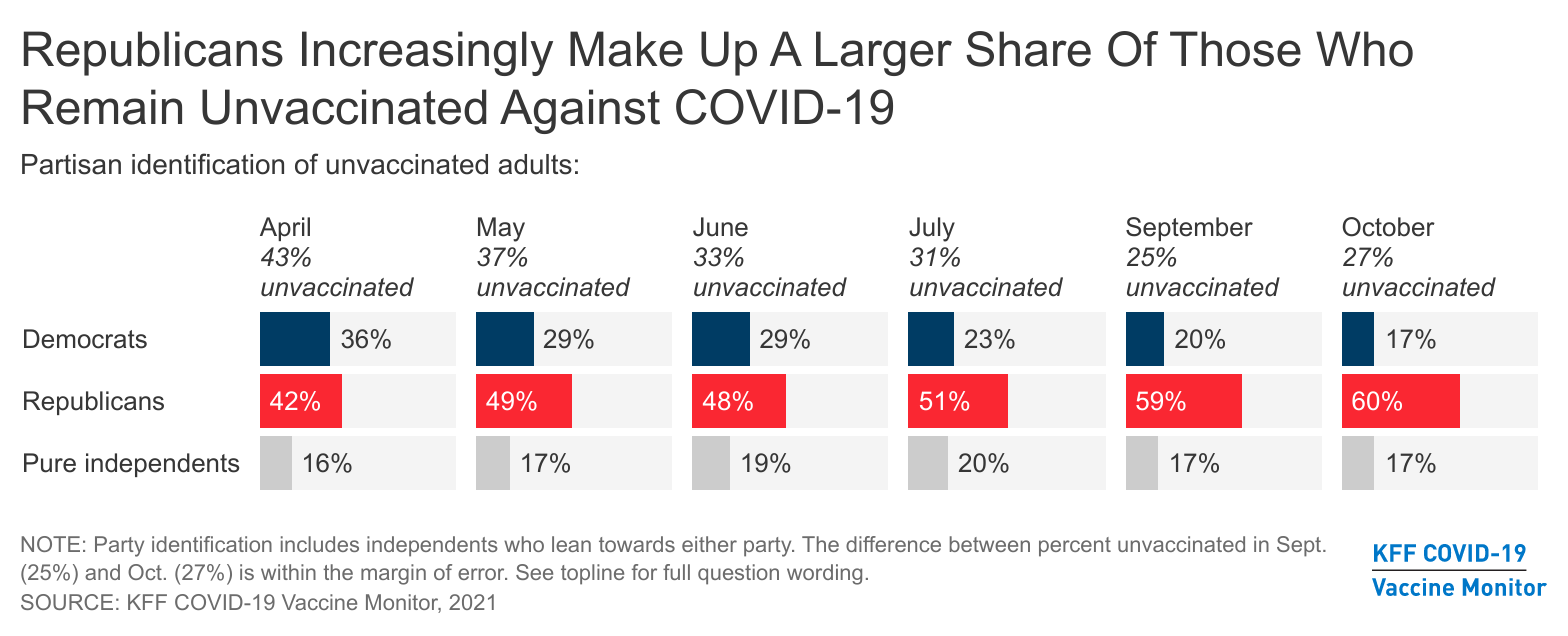A new KFF COVID-19 Vaccine Monitor analysis finds that Republicans and Republican leaning independents, who represent 41% of adults, now make up 60% of the adult unvaccinated population across the country and that political partisanship is a stronger predictor of whether someone is vaccinated than any demographic factor measured.
While COVID-19 vaccination rates have risen significantly since the spring across all groups, uptake has been slower among those who are or lean Republican. As a result, the shrinking unvaccinated population has become increasingly Republican over time, with unvaccinated adults now more than three times as likely to lean Republican than Democratic.
The analysis examined differences across a range of demographic factors, including racial and ethnic identity, age, education, geographic density, and insurance status.
Controlling for other factors, a Republican is 26 percentage points more likely than a Democrat to remain unvaccinated. This gap is greater than the gaps between racial and ethnic groups, people with varying education levels, people who are insured and uninsured, different age groups, or people who live in rural versus urban areas.
The analysis also examines differences between vaccinated and unvaccinated Republicans. Unvaccinated Republicans are more likely than vaccinated ones to believe that the news exaggerates the seriousness of the pandemic (88% v. 54%) and that getting vaccinated is a personal choice (96% v. 73%).
Such views pose substantial challenges for efforts to further increase vaccine uptake among U.S. adults, and potentially the acceptance of booster shots and vaccines for children as eligibility expands, the analysis suggests.


